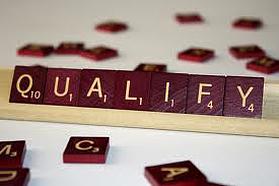Traditional wisdom about lucrative, stable career options includes such titles as “doctor” and “lawyer,” but not necessarily “startup engineer” or “executive vice-president.” Many of the nation’s wealthiest individuals, in fact, are startup founders, finance moguls and corporate executives, but that doesn’t seem to stop students from flocking to J.D. programs in search of long-term financial stability.
There is hard data to back this trend. Matt Leichter, an attorney who closely follows what has come to be known as the “Law School Bubble,”shares the graph (per The AmLaw Daily), indicating how applications to law schools tend to increase during periods of high unemployment and decrease as economic conditions improve.
It’s a trend that may reflect applicants’ hopes that a J.D. and admission to the state bar will provide access to the storied remunerative potential of an attorney’s $112,760 median pay. And who can blame these students for riding out the present economic turbulence by investing in such a highly-respected, and seemingly valuable, professional credential?
It would seem the law of supply and demand does. Data from the Association for Legal Professionals (NALP) demonstrates that the average salary of legal career professionals for the class of 2011 is closer to $73,984, with better than half of the 18,630 reported salaries ranging from $40,000 to $65,000. And this figure is down from $77,333 in 2010 and $85,198 in 2009. This is a clear indication that starting salaries for law school graduates are on the decline. With over 1.2 million attorneys in the U.S.—or roughly one for every 260 citizens (see Leichter’s 2010 research) is it possible that the employment market for law school grads is over-saturated? Are the graduation and bar admission rates for new attorneys rapidly outpacing job availability?
We pointedly asked if there’s a law school bubble to a recent Southern Methodist University law school graduate who now owns a private law practice in the Dallas-Fort Worth area. She responded, “When I went into law school, I would have said ‘no,’ but by the time I graduated, things had changed. During an economic downturn, not as many people pursue legal matters that aren’t ‘necessary’ so the bigger firms that handle those types of cases don’t hire as many attorneys. Government freezes and reduced funding for assistance programs also lead to fewer jobs.” The BLS job outlook for lawyers reaffirms this point by stating, “During recessions, demand declines for some discretionary legal services…Corporations are less likely to litigate cases when declining sales and profits restrict their budgets.”
The result is that many law school grads must look for work in occupations that make only marginal use of their expertise—or none at all. Erin Binns, director for career planning at Marquette University Law School, admits that successful grads must creatively deal with rejections and frustrations by casting their nets wide for employment. In the current issue of The Student Lawyer, she tells the story of three grads who landed their jobs by doing such things as applying for positions for which a J.D. was neither required nor preferred, accepting unpaid or part-time work for professional networking opportunities, and going above and beyond traditional expectations of their coursework and job requirements to distinguish themselves from the crowd.
Such things are hallmarks of those who succeed during an economic downturn in any industry, of course, but law students may face more pressure than most to find well-paying jobs after graduation. “Countless J.D.’s are paying their bills with jobs that have nothing to do with the law,” reports David Segal of the New York Times, “and they are losing ground on their debt every day…Studies find that most law students need to earn around $65,000 a year to get the upper hand on their debt.”
This, indeed, is the central problem of the “Law School Bubble.” For years, law schools—more than 200 of them—have been steadily flooding the U.S. marketplace with eager young lawyers who enter the workforce with ballooning tuition debt only to find their prospects aren’t nearly so rosy as originally predicted. And others are beginning to take notice of this trend. Jordan Weissmann of The Atlantic believes the bubble is beginning to deflate, as recent numbers indicate law school enrollments are slowly declining from previous years—though he also expresses concern that, ironically, it seems those students with the strongest competitive potential among their peers are the ones opting not to enroll. Is there another educational course such bright minds might pursue instead?
Business Masters programs have traditionally been strong competitors for liberal arts graduates who might otherwise pursue a J.D., but there is a persisting rumor that, while business school might open the door for “truly astronomical earnings,” the legal profession is a better route to “comfortable, affluent stability” (as quoted from this article at the US News University Connection). There’s a perception that the overall need for lawyers will always outpace the need for top-level business executives, whose salaries are almost entirely dependent upon changing economic conditions and the whims of consumer demand. But does this perception hold true in an employment market where attorneys are minted faster than job openings?
There is also the issue of prestige. A law degree, it seems, is still a badge of achievement for many, one that is more tangibly linked to success in the legal profession than even a distinguished business degree is to success in the business world. After all, you do not need a degree to open your own business, but without a law degree you will never be able to open a private law practice. However, in an employment market where J.D.’s are happily settling for jobs as paralegals and part-time research associates, does one with a business Masters who accepts a job as an executive assistant really carry any less prestige? Upward mobility in both professions seems linked more to an applicant’s social resources and creative goal-achievement strategies than to their educational credentials. Moreover, one could argue that what the business degree lacks in status it more than makes up for in flexibility and long-term earning potential.
Perhaps this is why an increasing number of students are considering dual-track J.D./M.B.A. programs that immerse students in both disciplines. At least one such graduate recognizes, “School is the means, not the end…Don’t go into school without a plan. Talk to lawyers. Talk to law students. Talk to business students. Have a very clear post-grad goal in mind, even if it changes.”
The lesson of the “Law School Bubble” is that too many liberal arts grads are piling into the legal career lifeboat without adequately counting the cost. Professional credentials may serve a social status goal, but when push comes to shove, the bottom line is what really counts—and the “bottom line” is something business school students know plenty about.* This post was co-auothored with Brandon Chicotsky








